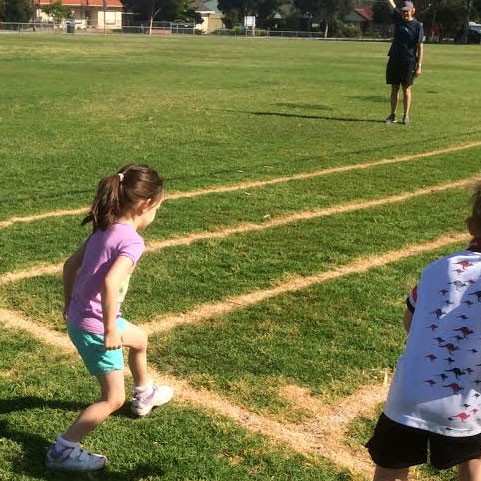
Children learn to manage their feelings with the help of their parents and the important people in their lives.
We all have feelings, all day every day, and as adults we have learnt ways to cope with fear, disappointment, loneliness, confusion, etc.
As parents we often want to protect our kids from feeling anything negative, but this just isn’t possible.
In fact by protecting kids from everything we don’t let them deal with feelings which reduces their capacity to cope.
Helping kids to recognise that they can have strong feelings and still be ok, that there are people there that love them and can help them are powerful messages that will stand them in good stead for the rest of their lives.
How to take baby steps towards a resilient child
So how do we help kids to be good at having feelings? Here are some of the basics:
Help kids recognise their feelings:If kids can recognise feelings this is the first step. Parents can help by commenting on how their child looks and wondering out loud about what they might be feeling, e.g. ‘wow, you’re staring at that workbook with a worried look on your face… are you worried about something..?’
Validate their feelings: Even though a child may seem to be over-reacting to a situation, it is important that they feel their reactions are understood and ok.
As kids, they are experiencing a lot of things for the first time and emotions can run high – can you remember being absolutely elated or absolutely devastated as a kid?
A good way to show you have listened and understood how a kid is feeling is to listen and repeat back a summary of what they have said and how they feel about it, e.g. ‘so you are really worried about getting everything done for your project because your friends are all smart and you want to do really well too. Is that right?’
Model managing feelings: As adults we have the benefit of hindsight, and chances are we have felt a similar way at some point.
Using your own experience to validate your child’s experience and show them ways that you have coped can be useful, e.g. ‘you know I used to worry about schoolwork too, and I sometimes had to get some extra help from my teacher. It was a bit embarrassing, but I’m glad I did it because then I understood better’.
Be careful however not to make it all about your own experience as your kids may see things differently to you!
Model problem-solving: Help think out loud with your child about things that might help them feel more confident or help solve their problem. Try to get them to come up with some ideas rather than everything being from you.
Small steps: Break big tasks or scary things down into little steps and practice, practice, practice!
For example, starting a big project might be overwhelming, but doing a title page or looking up definitions might be a way to start.
Reinforce the message that you think they will be able to manage this challenge: Using examples of other times they have coped, or things have turned out ok can be useful. Sometimes kids might need help to get started with something or seek further help from school etc, which parents can support.
Encourage perseverance: Reinforce the message that if something doesn’t work the first time, they can try again, and that they can come back to you to talk about it more.
Reinforce brave behavior: Trying things for the first time, or things that are hard, takes a lot of effort.
Taking the opportunity to praise and reward these efforts is important.
You might want to track kids’ progress visually to demonstrate success if there is something specific that keeps coming up.
Dealing with your own fear
As parents it can be scary to let your kids make mistakes and be vulnerable, and it may trigger off some strong feelings of our own.
The temptation can be great to tell kids ‘not to worry’ or ‘don’t cry’ as we feel uncomfortable seeing our kids upset.
It is good to be aware of our own feelings and to also accept these.
By staying calm and accepting kids’ feelings, talking things through, and just being there for them you are doing a great job and this will help them build the skills to cope.
If you are finding that it is challenging being able to manage these times effectively, use your support networks to talk things through, or contact our friendly team!
Author: Candice Broadbent
Subscribe to our newsletter Attuned Life
Would you be interested in receiving our occasional newsletter, event information and other useful tips via e-mail?

